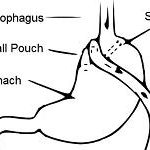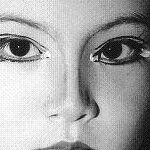Eating Disorders
Articles, Videos and treatment options for Eating Disorders
The term “eating disorder” encompasses a wide variety of abnormal behaviors that can present in a number of clinical pictures. One of the most basic ways to define “eating disorder” is as a cluster of abnormal eating habits associated with deranged thoughts or negative feelings. To define “eating disorder” adequately both psychological and clinical symptoms must be addressed.
Our overview of eating disorders can be found here. For the latest content, scroll down and select from the list.

The term “thinspiration,” or “thinspo,” is widely becoming more popular in niche populations of young girls whose deadly obsessions with body and weight have taken over nearly every aspect of their lives. Described as promoting images and videos of thin, often starving women as attractive, thinspiration is continuing to push its way into mainstream culture. …
Read More

6 months before her wedding, one young woman decided to forego mirrors for a full year in order to avoid relapsing into an eating disorder that plagued her college years. Kjerstin Gruys, sociology Ph. D candidate at UCLA, has titled her blog “Mirror, Mirror… OFF the Wall” and hopes to break her bad habit of …
Read More

Surgery for weight loss, also called bariatric surgery, has one primary aim – to reduce the amount of calories a patient can absorb, causing weight loss. This is done in one of two main ways. The first is primarily by limiting the size of the stomach, so that less food can be consumed at any …
Read More

There’s a natural dilemma when it comes to talking to parents about an eating disorder. On the one hand, they represent the best resource to get help and they can offer the most powerful support. On the other hand, an eating disorder is embarrassing – it feels like the furthest thing from making your parents …
Read More

It can be difficult to spot an eating disorder in a teenager. This is partly because there may be little interaction at meal times and because changes in eating behavior might seem like just another one of those “phases.” However, serious eating disorders often arise during the teen years, just as our young people are …
Read More

A binge eating disorder is thought to be a consequence of an emotional or mental condition, rather than the result of a physical disease. This means that medications to treat binge eating are used to treat the underlying condition, rather than the eating behavior directly. The primary treatment is still “talk therapy” which attempts to …
Read More

Kate Middleton, Duchess of Cambridge, has been under the media spotlight ever since her engagement with Prince William of England was made public. While most press applaud her beauty, grace, and lack of public scandals (unlike her brother-in-law, Prince Harry), some news sources have attacked Kate for being “too thin” to be a role model. …
Read More

The media often portrays anorexia and bulimia as part of vanity, an obsession with beauty, or an aspiration to be fashionable. While all these may trigger an eating disorder, environmental factors are actually far less to blame than people think. A study published in the American Journal of Psychiatry found that about 60% of a …
Read More

Binge eating disorder, or BED was only first outlined as a separate disease state in the 1990s and is still not a diagnosis found in the Diagnostic Services Manual. This is likely to change when the next version is published as an advisory panel has recommended it be included as a separate diagnosis. Binge eaters …
Read More

Eating disorders are not usually considered a primary diagnosis that stands alone. Rather, they are associated with other conditions, so are more properly a suite of symptoms that result from other troubles. This gives a way to spot possible eating disorders as they develop in teenage girls, instead of just waiting for full-blown symptoms to …
Read More
 Eating Disorder Self Test. Take the EAT-26 self test to see if you might have eating disorder symptoms that might require professional evaluation. All answers are confidential.
Eating Disorder Self Test. Take the EAT-26 self test to see if you might have eating disorder symptoms that might require professional evaluation. All answers are confidential.
Find a Treatment Facility Near You
Click on a state below to find eating disorder treatment options that could be right for you.










 Eating Disorder Self Test. Take the EAT-26 self test to see if you might have eating disorder symptoms that might require professional evaluation. All answers are confidential.
Eating Disorder Self Test. Take the EAT-26 self test to see if you might have eating disorder symptoms that might require professional evaluation. All answers are confidential.